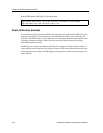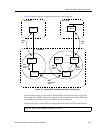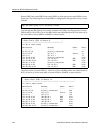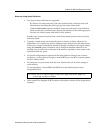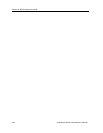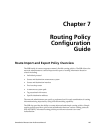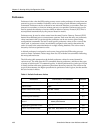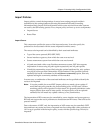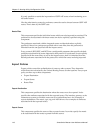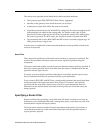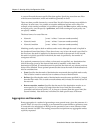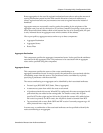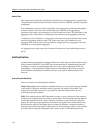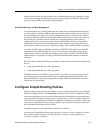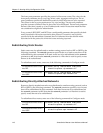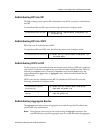
Chapter 7: Routing Policy Configuration Guide
110 SmartSwitch Router User Reference Manual
It is only possible to restrict the importation of OSPF ASE routes when functioning as an
AS border router.
Like the other interior protocols, preference cannot be used to choose between OSPF ASE
routes. That is done by the OSPF costs.
Route-Filter
This component specifies the individual routes which are to be imported or restricted. The
preference to be associated with these routes can also be explicitly specified using this
component.
The preference associated with the imported routes are inherited unless explicitly
specified. If there is no preference specified with a route-filter, then the preference is
inherited from the one specified with the import-source.
Every protocol (RIP, OSPF, and BGP) has a configurable parameter that specifies default-
preference associated with routes imported to that protocol. If a preference is not explicitly
specified with the route-filter, as well as the import-source, then it is inherited from the
default-preference associated with the protocol for which the routes are being imported.
Export Policies
Export policies control the redistribution of routes to other systems. They determine
which routes are advertised by the Unicast Routing Process to other systems. Every export
policy can have up to three components:
• Export-Destination
• Export-Source
• Route-Filter
Export-Destination
This component specifies the destination where the routes are to be exported. It also
specifies the attributes associated with the exported routes. The interface, gateway or the
autonomous system to which the routes are to be redistributed are a few examples of
export-destinations. The metric, type, tag, and AS-Path are a few examples of attributes
associated with the exported routes.
Export-Source
This component specifies the source of the exported routes. It can also specify the metric
to be associated with the routes exported from this source.



